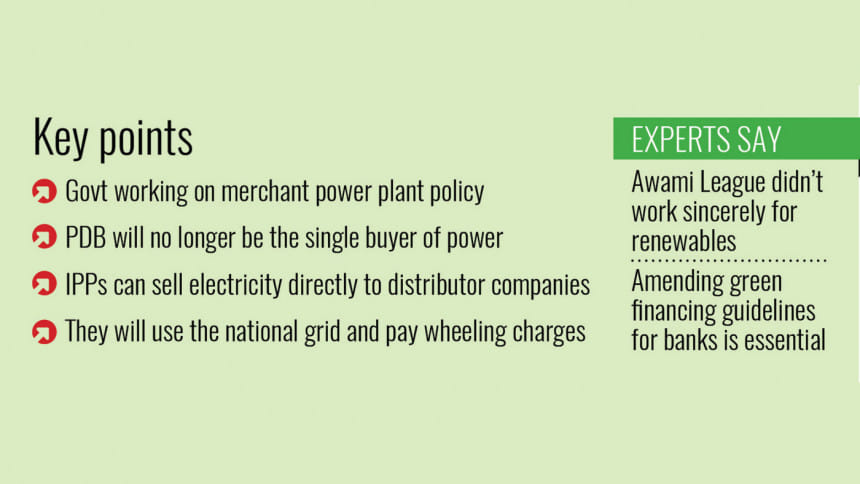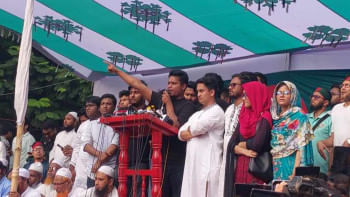PDB to give up role as sole buyer of electricity from private producers

The Bangladesh Power Development Board (PDB) will no longer be the sole buyer of electricity produced by independent power producers (IPPs), said Fouzul Kabir Khan, adviser to the Ministry of Power, Energy and Mineral Resources.
He said the government is working on a merchant power plant policy, under which the PDB will purchase a minimum 10-20 percent of total power offtake from any new private plants.
Currently, the PDB is the sole buyer of electricity in the country, purchasing power from IPPs and through import and then reselling it to six distributor companies. The government also guarantees a minimum offtake. If the PDB is unable to purchase that amount, they pay IPPs for unproduced power.
However, the adviser said for any agreements made under the new policy, the private producer has to sell electricity directly to buyers or distributor companies by paying wheeling charges to use the national grid.
The adviser was addressing a seminar, titled "Energy Transition to Renewables: Role of Domestic Financial Institution", organised by the Economic Reporters Forum (ERF) at its auditorium yesterday.
About the barriers hindering the transition to renewables, Khan said one major reason was that the Awami League government set renewable energy targets but did not work sincerely towards those.
"Banks have financed many projects seeing the faces of the people, not based on the assets of investors or after checking balance sheets," he said.
"There is a myth that land scarcity poses an obstacle to setting up solar power plants, but this is not true," he said, adding that the government had acquired plenty of land that is not being utilised properly.
"We don't have any other choices but to go towards renewables," Khan stressed.
Regarding the demand to reduce import duties on items used for solar energy projects, he said they had already withdrawn advance income taxes and other duties on such products.
However, he stressed that they would emphasise local production.
"If you ask to reduce import duties on cables, how would it be logical? We have local cable manufacturers. There is nothing we cannot produce locally. If we want to be self-contained, we need to go for local manufacturing of panels, inverters, batteries and so on," he added.
While presenting the keynote paper, Gouranga Nandy, chairperson of the Centre for Environment and Participatory Research, said the country will require a staggering Tk 87,000 crore in investment over the next six years to achieve the renewable energy target to have a mix of 30 percent renewable energy in its total power generation by 2030.
He said domestic commercial banks need to scale up investment in solar and wind power projects if the country wants to meet its renewable energy goal.
Citing Bangladesh Bank data, he said domestic banks have invested around Tk 73,000 crore in green and sustainable projects in the last six years, but less than 3 percent went to renewable energy projects.
Khondaker Golam Moazzem, research director at the Centre for Policy Dialogue, said the banks usually lend on a six to eight-year repayment method, which is tough for a renewable project as it takes more time for such initiatives to turn a profit.
"It takes around 10-12 years for repayment and the banks need to ease their policy," he said.
Hasan Mehedi, chief executive of CLEAN, a co-organiser of yesterday's event, said each megawatt of installed solar power would annually save the country Tk 26.1 million worth of furnace oil imports.
He suggested Bangladesh Bank amend the green financing guidelines for local banks.
ERF President Refayet Ullah Mirdha chaired the event while City Bank's Chief Economist Ashanur Rahman, Action Aid's Abul Kalam Azad, and Campaign for Sustainable Rural Livelihoods' Ziaul Hoque Mukta also spoke.

 For all latest news, follow The Daily Star's Google News channel.
For all latest news, follow The Daily Star's Google News channel. 



Comments